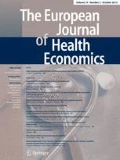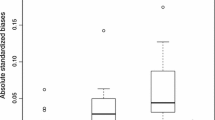Abstract
Since 2002, the Croatian social health insurance system has undergone substantial reforms, initiated for the most part with the aim of addressing the perpetual financial deficits of the state health insurance fund. While the reforms focussed heavily on increasing the inflow of private funds into the health care system, underlying inefficiencies contributing significantly to poor financial performance have been largely ignored. Furthermore, contrary to demographic trends and developments in social health insurance schemes in other countries, funding health care became even more dependent on its main collection mechanism—payroll tax—and consequently on the employment ratio and wage level. Little effort has been made to diversify the revenue base or to increase the efficiency of revenue collection. Like other countries, Croatia is facing difficulties in adjusting its ‘Bismarck’ system to its changing demographic and socioeconomic context. Instead of targetting a comprehensive effort at improving revenue collection and limitating unnecessary expenditure and system inefficiencies, simplified approaches to balance the budget have been implemented at a high price to users and with limited effect. As a result, the Croatian health insurance system now offers a lower level of financial protection, while still facing the problem of spending more than can be collected through the current mix of revenue collection mechanisms. The authors suggest that, in order to meet the sustainability requirement of the health financing system, measures affecting both revenue and expenditure should be considered and implemented. On the revenue collection side, the Croatian government must make further efforts to improve collection from the informally employed to broaden the base of contributing members; equally important is the diversification of revenue sources by increasing transfers from general taxation revenues. On the expenditure side, exploring inefficiencies of the delivery system can be delayed no longer, and the introduction of effective cost-control mechanisms and financial discipline would seem to be unavoidable.
Similar content being viewed by others
References
Voncina, L., Jemiai, N., Merkur, S., Golna, C., Maeda, A., Chao, S., Dzakula, A.: Croatia: health system review. Health Syst Transition 8(7), 1–108 (2006)
Croatian Institute for Health Insurance (HZZO): Financial report for I–XII 2003, Zagreb, February 2004 (in Croatian)
Croatian Institute for Health Insurance (HZZO): Financial report for I–XII 2004, Zagreb, February 2005 (in Croatian)
Croatian Institute for Health Insurance (HZZO): Financial report for I–XII 2005, Zagreb, February 2006 (in Croatian)
Croatian Institute for Health Insurance (HZZO): Financial report for I–XII 2006, Zagreb, March 2007 (in Croatian)
HZJZ: Croatian National Institute of Public Health, Croatian health service yearbook for 2004, Zagreb (2005) (in Croatian)
DZS: Republic of Croatia, Central Bureau of Statistics, statistical information, Zagreb (2005)
DZS: Republic of Croatia, Central Bureau of Statistics, statistical information, Zagreb (2006)
DZS: Republic of Croatia, Central Bureau of Statistics, statistical information, Zagreb (2007)
International Monetary Fund (IMF): World economic outlook database, April 2008
Saltman, R.B.: Social health insurance in perspective—the challenge of sustaining stability. In: Saltman, R.B., Busse, R., Figueras, J. (eds.) Social health insurance systems in Western Europe. Open University Press, Buckingham (2004)
Ministry of Finance (MF): Report on the Execution of the Croatian State Budget for 2003. Official gazette of the Republic of Croatia No. 84 (2004)
Ministry of Finance (MF): Report on the Execution of the Croatian State Budget for 2004. Official gazette of the Republic of Croatia No. 83 (2005)
Ministry of Finance (MF): Report on the Execution of the Croatian State Budget for 2005. Official gazette of the Republic of Croatia No. 80 (2006)
Ministry of Finance (MF): Report on the Execution of the Croatian State Budget for 2006. Official gazette of the Republic of Croatia No. 70 (2007)
Ministry of Health and Social Welfare (MZSS): National strategy for the development of health care from 2006–2011. Official gazette of the Republic of Croatia No. 72 (2006) (in Croatian)
Voncina, L., Dzakula, A., Mastilica, M.: Health care funding reforms in Croatia: a case of mistaken priorities. Health Policy 80, 144–157 (2007)
Insurance Companies Supervisory Authority, Zagreb, insurance market in the Republic of Croatia, June 2004
World Health Organization: National Health Accounts. Croatia. Available on http://www.who.int/nha/country/hrv/en/. Accessed 20 April 2009
Kadic O.: Association of employers in health care. Arrears and models of sanation in Croatian health care providers, Zagreb (2006) (in Croatian)
Lovrincevic Z, Maric Z and Mikulic D.: Maastricht criteria and inclusion of grey economy—the case of Croatia. Privredna kretanja i ekonomska politika 106/2006. Institute of Economics, Zagreb (2006) (in Croatian)
Mastilica, M., Kusec, S.: Croatian healthcare system in transition, from the perspective of users. BMJ 331, 223–226 (2005)
Acknowledgements
The authors are grateful to Wim Groot, Professor of Health Economics at the Maastricht University for providing comments on the paper. The research presented in this article was funded by the World Health Organization, Regional Office for Europe.
Author information
Authors and Affiliations
Corresponding author
Appendix 1
Appendix 1
Average annual exchange rates for the Croatian Kuna (HRK) according to the Croatian National Bank (available from www.hnb.hr). EUR Euros, CHF Swiss francs, GBP Great Britain pounds, USD United States dollars
Year | HRK/EUR | HRK/CHF | HRK/GBP | HRK/USD |
|---|---|---|---|---|
2002 | 7,406,976 | 5,049,125 | 11,793,108 | 7,872,490 |
2003 | 7,564,248 | 4,978,864 | 10,943,126 | 6,704,449 |
2004 | 7,495,680 | 4,854,986 | 11,048,755 | 6,031,216 |
2005 | 7,400,047 | 4,780,586 | 10,821,781 | 5,949,959 |
2006 | 7,322,849 | 4,656,710 | 10,740,292 | 5,839,170 |
Rights and permissions
About this article
Cite this article
Voncina, L., Kehler, J., Evetovits, T. et al. Health insurance in Croatia: dynamics and politics of balancing revenues and expenditures. Eur J Health Econ 11, 227–233 (2010). https://doi.org/10.1007/s10198-009-0163-4
Received:
Accepted:
Published:
Issue Date:
DOI: https://doi.org/10.1007/s10198-009-0163-4




